At the 7th conference of full-time National Assembly deputies on March 25, Delegate Tran Van Khai (Ha Nam delegation) said that the Draft Law on Digital Technology Industry plays a very important role in institutionalizing Resolution 57 of the Politburo on breakthroughs in science and technology development, innovation and national digital transformation.
According to the delegates, Resolution 57 requires innovation in management thinking, avoiding the mindset of banning if it cannot be managed, paving the way for new technology through a controlled pilot mechanism. The draft has made an important step forward with the regulation of the testing mechanism in Chapter V.
However, the scope of testing is still too narrow in Article 42, omitting some subjects or many subjects in innovation, while listing many very general prohibited acts in Article 12 and imposing some additional business conditions.
"Such overly cautious management will stifle innovation, making businesses afraid to experiment with new technologies in Vietnam," the delegate emphasized, and at the same time recommended expanding the sandbox scope for all new digital technology products and services that are not regulated by law, simplifying testing approval procedures, and removing unnecessary prohibitions and conditions.
In addition, it is necessary to empower the Government to temporarily allow piloting of new technologies and models that do not have any regulatory laws and can be reported to the National Assembly later, in order to promptly seize development opportunities.
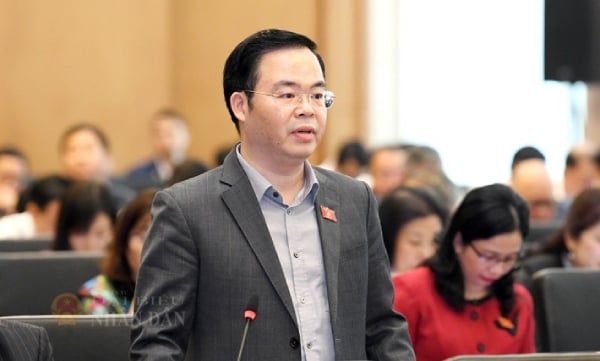
According to the delegate, Resolution 57 considers data as an asset, a strategic resource and requires making data the main means of production and developing the data economy.
However, the Draft Law has not clearly demonstrated this policy. The main regulations on technical management do not have an effective sharing and exploitation mechanism. For example, there are no provisions promoting the opening of public data or the development of the data market.
"Such a cautious approach will lead to an untapped "gold mine" of data, businesses lacking raw materials to develop artificial intelligence, reducing competitiveness. I propose adding regulations to promote the data economy, such as the principle of open data and data sharing between state agencies and businesses, forming data centers and exchanges, and at the same time, assigning the Government to regulate the list of open data and the mechanism to ensure privacy when sharing data, thereby creating momentum for the data industry to develop in the true spirit of Resolution 57," delegate Khai proposed.
Regarding human resources, the delegate said that Resolution 57 requires special policies to attract and utilize domestic and foreign technology talents with breakthrough mechanisms. The draft law mentions this issue in Article 25 but is still general and does not specify outstanding incentives.
These limitations make it difficult for us to compete to attract brains, and high-quality human resources will continue to be in short supply. Therefore, the Delegate recommends adding breakthrough talent policies, exempting and reducing income tax for technology experts, simplifying administrative procedures for foreign experts to stay, and increasing support for training digital technology talents. These solutions will institutionalize the orientation of Resolution 57, creating advantages for Vietnam to compete for high-quality human resources in the coming time.
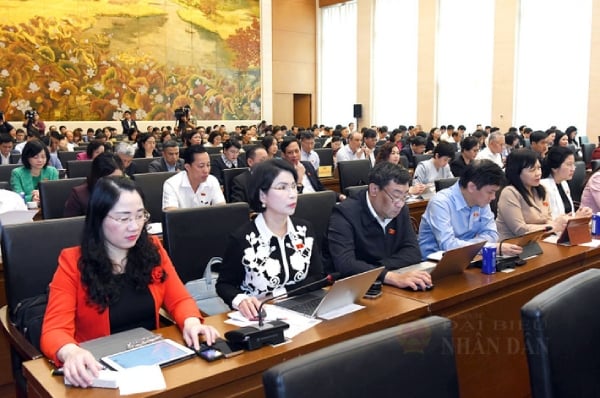
Also commenting on the issue of human resources, Delegate Pham Trong Nghia (Lang Son delegation) said: The draft provides a number of incentives to train and attract human resources for the digital technology industry through policies such as scholarship support, attracting foreign experts, and promoting talents in Articles 23 and 24.
This policy needs to be more innovative because attracting human resources, especially digital technology talent, requires high international competition. To attract international talent and avoid the loss of domestic talent, preferential policies must be outstanding and specific as determined in Resolution No. 57. At the same time, these policies must be competitive enough with other countries.
Meanwhile, Delegate Nguyen Thi Thu Nguyet (Dak Lak delegation) said that the support policy for each group of enterprise technology is still quite general. The delegate suggested that the Drafting Committee further study, refer to, and compare policies on supporting industries such as national supporting industry programs issued by the Prime Minister, and Circulars of the Ministry of Finance on guidelines for industrial support levels.
Accordingly, it is possible to propose breakthrough, reasonable and unified support policies as a basis for localities to develop superior digital technology support policies to play a leading role compared to other support policies that have been implemented and issued in localities.
For enterprises with foreign direct investment, enterprises need clarity and transparency in preferential policies to decide on long-term investment and commitment to the Vietnamese market. These incentives will promote stronger development in our Vietnam, promote the development of digital industrial parks in Vietnam and create favorable conditions for comprehensive development.
In addition, delegates also gave comments on regulations related to artificial intelligence (AI), digital assets, controlled testing mechanisms...
According to Minister of Science and Technology Nguyen Manh Hung, the Law on Digital Technology Industry is a very difficult new law, without much international experience.
The digital technology industry is a technical economic sector, this sector is very dynamic, very large and very important to the country. The Party and State have identified the digital technology industry as a fundamental industry, strategic and especially suitable for Vietnam's potential.
The drafting committee will seriously study and absorb all opinions, especially on the scope of regulation and new contents such as semiconductor industry, artificial intelligence, virtual assets, and controlled testing to complete the draft law and submit it to the National Assembly for approval in the next session.
Source: https://doanhnghiepvn.vn/cong-nghe/quan-ly-qua-than-trong-khien-doanh-nghiep-ngai-thu-nghiem-cong-nghe-moi/20250326055451283



![[Photo] General Secretary To Lam receives US Ambassador to Vietnam Marc E. Knapper](https://vstatic.vietnam.vn/vietnam/resource/IMAGE/2025/3/31/5ee45ded5fd548a685618a0b67c42970)
![[Photo] 2nd Conference of the Party Executive Committee of Central Party Agencies](https://vstatic.vietnam.vn/vietnam/resource/IMAGE/2025/3/31/8f85b88962b34701ac511682b09b1e0d)

![[Photo] Speeding up construction of Ring Road 3 and Bien Hoa-Vung Tau Expressway](https://vstatic.vietnam.vn/vietnam/resource/IMAGE/2025/3/31/f1431fbe7d604caba041f84a718ccef7)
![[Photo] Prime Minister Pham Minh Chinh receives delegation of leaders of US universities](https://vstatic.vietnam.vn/vietnam/resource/IMAGE/2025/3/31/8be7f6be90624512b385fd1690124eaa)






























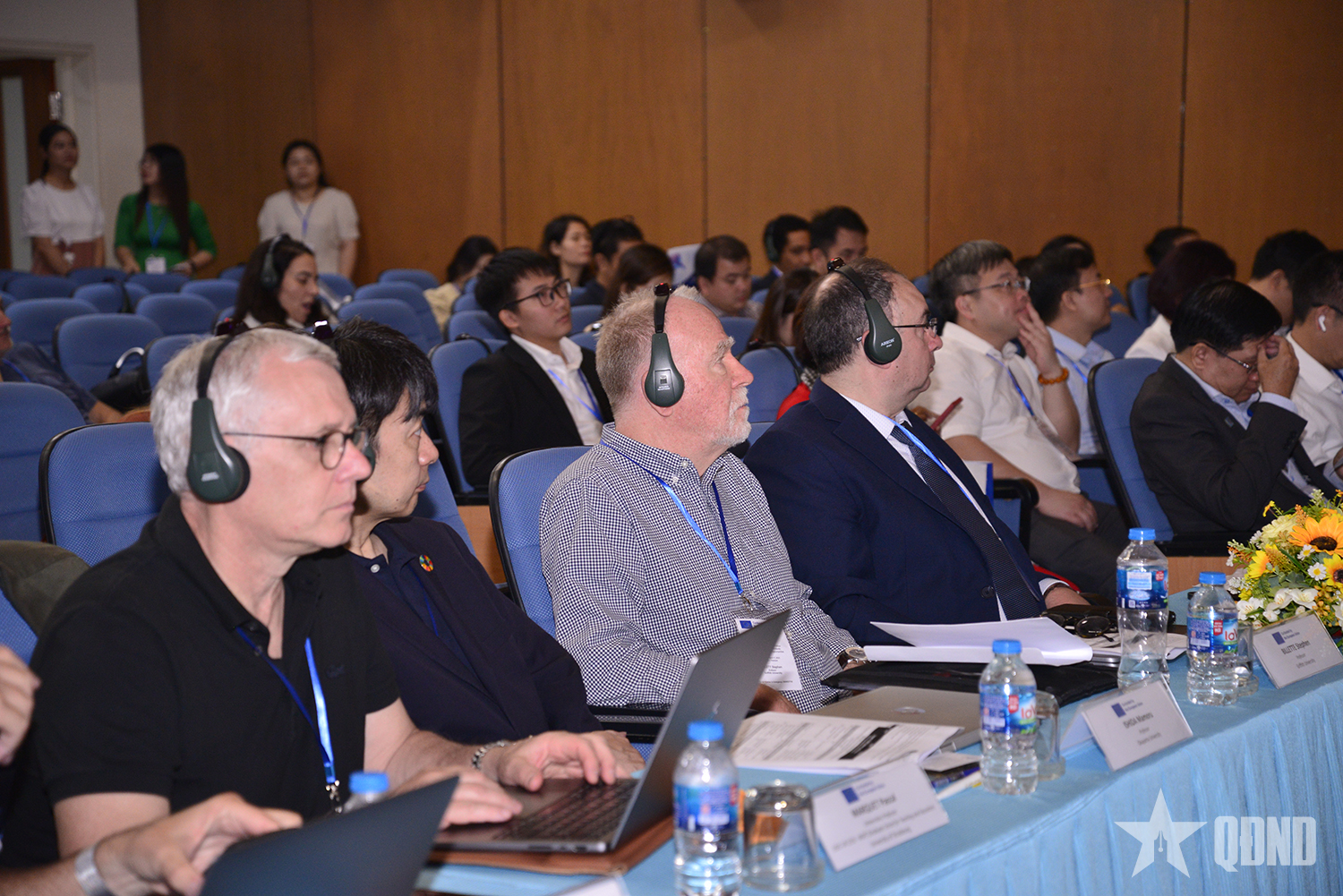


















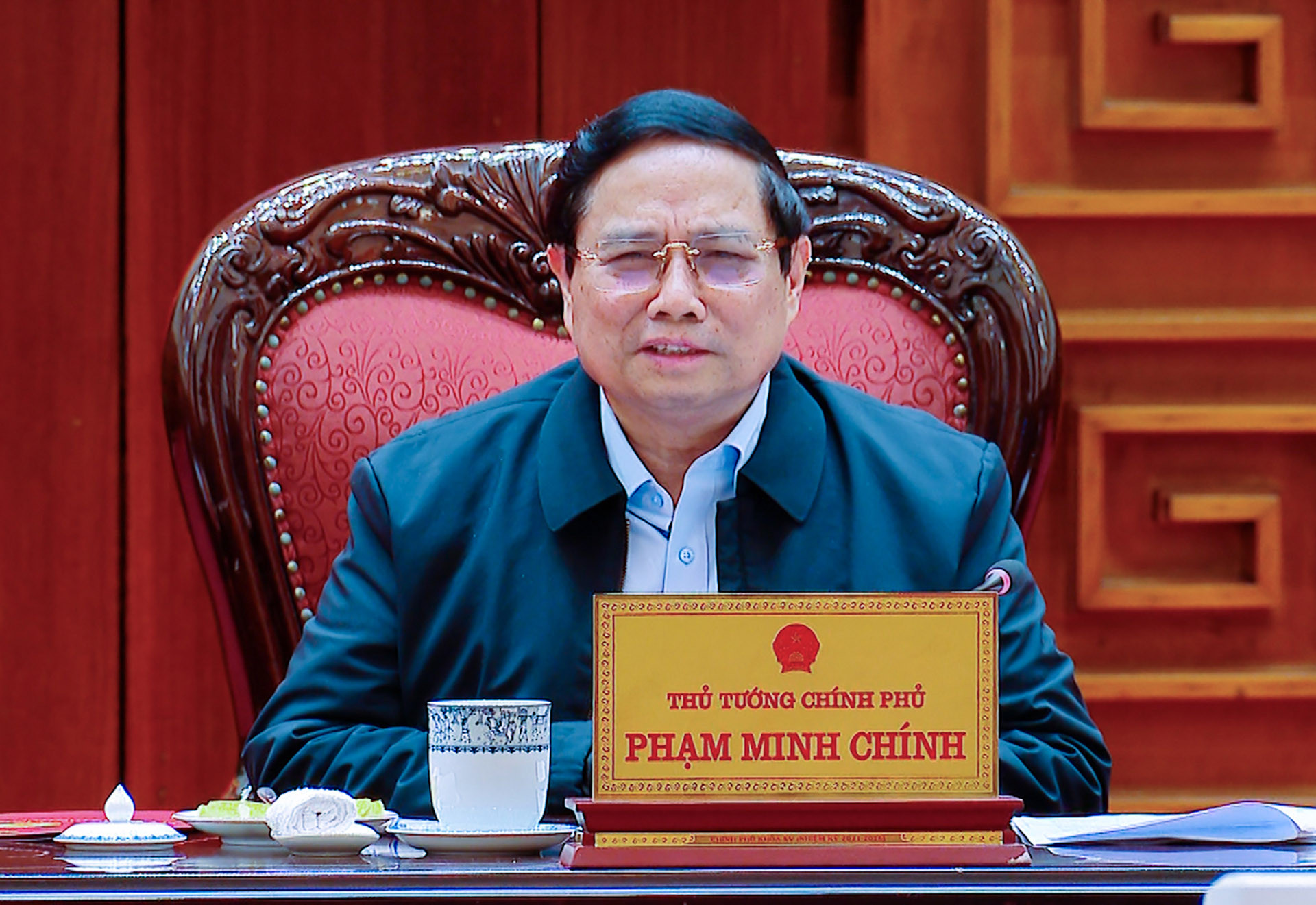







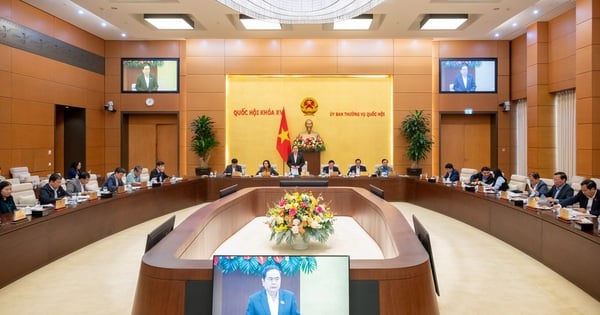
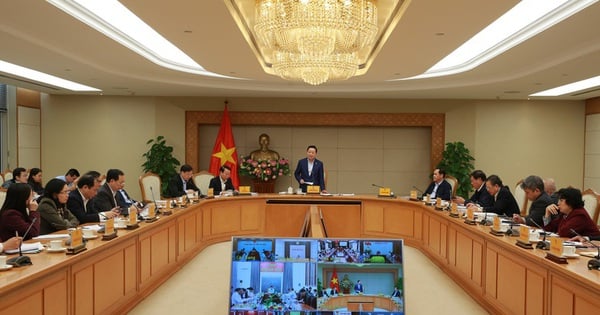
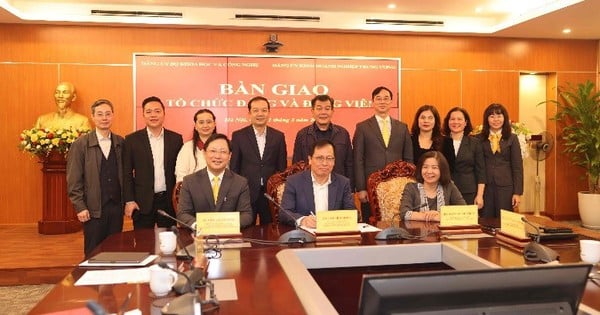


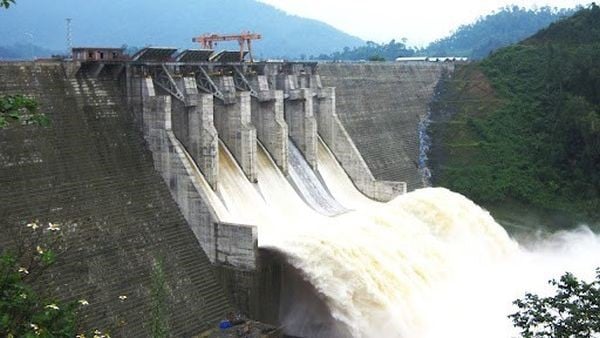





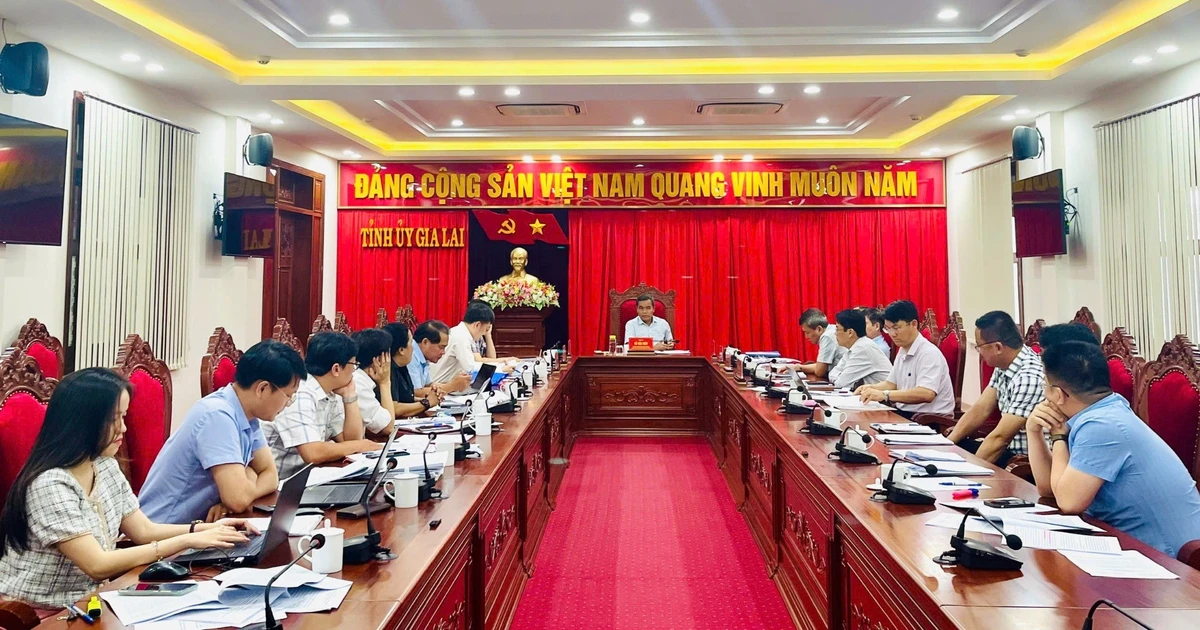















![[REVIEW OCOP] An Lanh Huong Vet Yen Cat](https://vstatic.vietnam.vn/vietnam/resource/IMAGE/2025/3/27/c25032328e9a47be9991d5be7c0cad8c)

Comment (0)